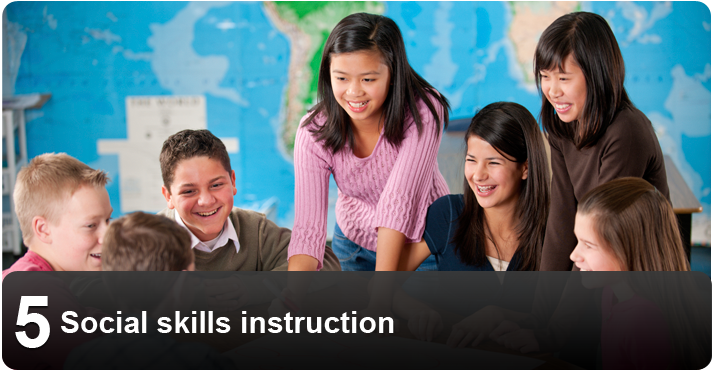|
Table of Contents
|

“… the very profession of teaching calls on us to try to produce not merely good learners but good people.” – Alfie Kohn, “Caring Kids:
The Role of the School” Social skills are essential to the effective functioning of any group or community. All students, including those with behaviour disabilities, benefit from social skills instruction and ongoing reinforcement of their performance of social skills. Current research indicates that:
In a safe and caring classroom, students can interact comfortably with peers, and learn and practise social skills. Students come to school with varying backgrounds and experiences. Many are uncertain about what the social expectations really are, and they need direct assistance to identify and learn social skills. Students who have behaviour disabilities (or who are at risk of developing such difficulties) have a particular need for targeted social skills instruction and ongoing coaching to help them connect with peers and feel that they belong to the school and classroom community. Social skills are also an integral part of learner outcomes across the subject areas. For example, a general outcome of Alberta’s English language arts program of studies is that students will respect, support and collaborate with each other. The new social studies program provides many opportunities for students to develop knowledge, skills and attitudes that will help them become engaged and responsible citizens. The program emphasizes the importance of diversity and respect for differences, and creates opportunities for students to engage in problem solving and conflict resolution. Skills for classroom learning
Skills for making friends
Skills for dealing with feelings
Alternatives to aggression
Skills for dealing with stress
Social skills are best taught one at a time in the environment in which they will be used.
|


